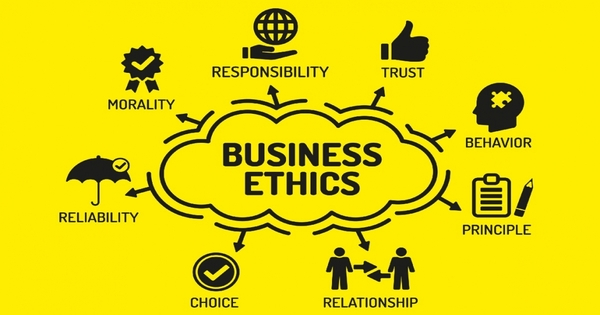Business ethics is the study of ethical principles and moral or ethical problems that can arise in a business environment. It involves examining how ethical considerations should influence business decisions and behavior, and evaluating the impact of these decisions on stakeholders, such as employees, customers, shareholders, and the community. The goal of business ethics is to create a work environment that is fair, responsible, and sustainable, and to help organizations make decisions that are not only profitable but also morally defensible.
The goal of business ethics is to promote integrity, accountability, and fairness in business practices, while balancing the interests of stakeholders such as shareholders, employees, customers, and the wider community. Key areas of business ethics include insider trading, discrimination, privacy, corporate responsibility, and sustainability. It encompasses the moral and ethical principles that govern the decision-making process of organizations and individuals.
Business ethics is important because it helps to build trust and credibility with customers, employees, and other stakeholders, and can lead to long-term success and sustainability for the organization. It involves making decisions and taking actions that are consistent with what is considered right, fair, and just. This includes issues such as honesty, integrity, respect for others, corporate social responsibility, and environmental sustainability.
Business ethics is the study of appropriate business policies and practices regarding potentially contentious topics such as corporate governance, insider trading, bribery, discrimination, corporate social responsibility, fiduciary responsibilities, and many others. The law frequently guides business ethics, but business ethics can also provide a basic guideline that businesses can follow to gain public approval. Business ethics emerged in the 1960s as corporations became more aware of a growing consumer-based society concerned with the environment, social causes, and corporate responsibility. The increased emphasis on “social issues” was a defining feature of the decade.
Importance of Business Ethics
There are several reasons why business ethics is critical for modern business success. Most importantly, defined ethics programs create a code of conduct that guides employee behavior, from executives to middle management to the newest and youngest employees. When all employees make ethical decisions, the company develops a reputation for integrity. Its reputation grows, and it begins to reap the benefits of being a moral establishment:
- Brand recognition and expansion
- Increased bargaining power Increased trust in products and services
- Customer retention and expansion
- Attracts talent and investors
















